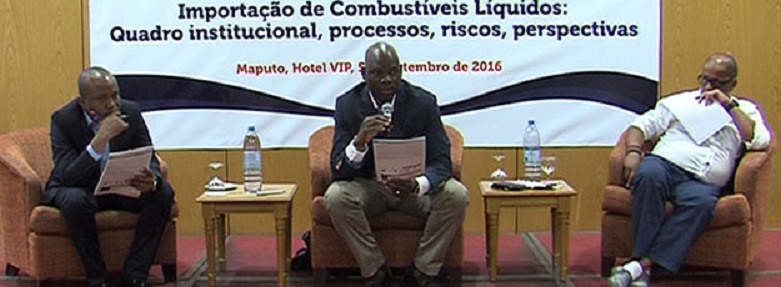Mozambique: President highlights 'controlled inflation and robust reserves' at central bank's 50th ...
“Cost of fuel for consumers not lowered due to illegalities in supply contracts” – CIP

O País
The price of oil on the international market fell 52 percent between 2013 and 2014 to about US$30 per barrel, but the cost of fuel in Mozambique has not fallen, which the government justifies by saying that it was to compensate for subsidies that prevented fuel price from rising since 2008, when gas stations were paid the difference in the international price.
This explanation does not however convince the Centre for Public Integrity (CIP), which decided to conduct a study that concludes that the main reason was an illegal contract between the executive and a supplier. According to CIP director, Adriano Nuvunga, there was a corrupt management of the liquid fuel suppliers contract.
“Contrary to what the government said at the time – that it was a compensation for companies that were long left in deficit – the issue was actually due to the fact that the Ministry of Energy has twice extended, in a way which is not legal, the contract with a liquid fuel provider called Vitol, which kept prices high, instead of making a public tender to quickly find a supplier which could provide liquid fuels at a price a consistent with the international fall of [the price of oil in] the markets,” Nuvunga claims.
The fuel price maintenance also safeguarded the corrupt interests of groups that the CIP calls “political elites”.
“From our calculations, in the period September 2014 to February 2015, there was income of approximately US$90 million which seems to have advantaged vested interests, not benefited citizens at a time when, in the same period, the Mozambican state was forced to pay a bill of about US$100 million to international oil companies here,” Nuvunga says.
Without naming names, Nuvunga tried to be more specific in relation to those he sees as beneficiaries of the alleged infringements on fuel imports. “The process has singularly benefited people and leaderships well placed politically, but some sources also suggest the money was used to finance the ruling party’s election campaign,” he said.
Nuvunga criticized the fact that the institutional architecture for fuel imports made room for changes. “Despite the IMOPETRO (Importadora Mozambican Petroleum) doing a job that seems transparent and acceptable, there is the possibility of the minister changing the competition after it has closed. Institutionally, there is a weakness post-competition, which creates leeway for political influence.”
Nuvunga was speaking in Maputo at the launch of a study on the theme “Liquid Fuel Imports, Institutional Framework, Processes, Risks, Prospects”.












Leave a Reply
Be the First to Comment!
You must be logged in to post a comment.
You must be logged in to post a comment.